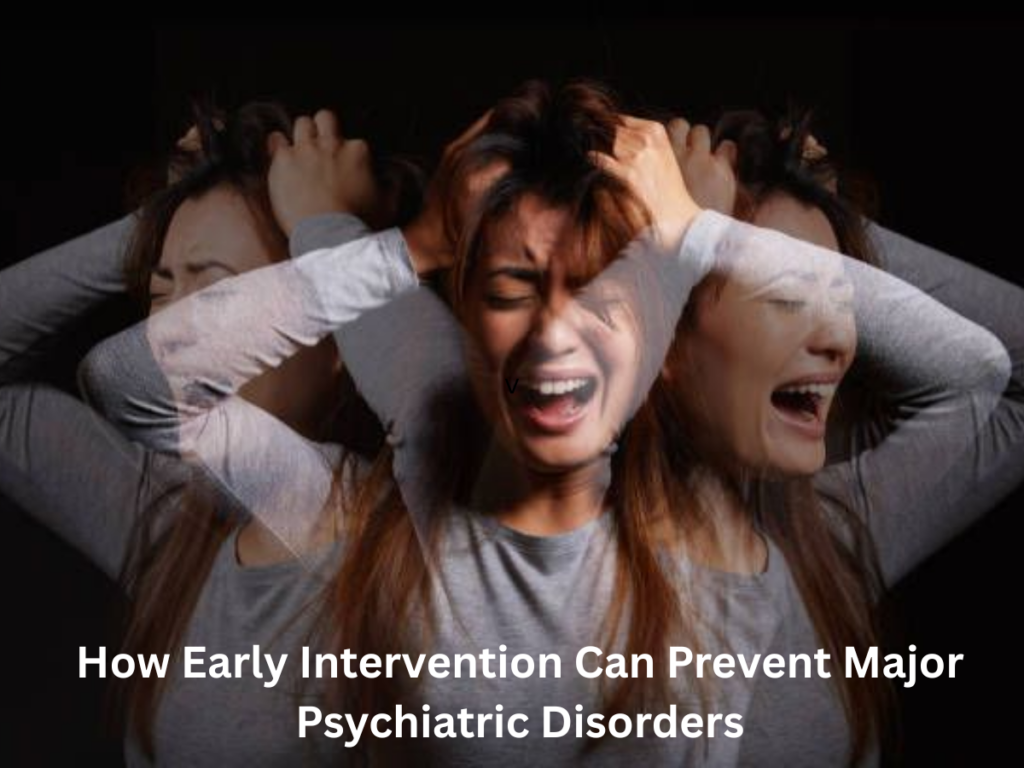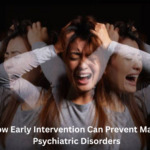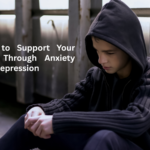
Mental health issues often develop gradually, beginning with subtle signs that may go unnoticed or be mistaken for temporary mood shifts or stress. However, research and clinical experience show that identifying and addressing these signs early—before they escalate—can significantly reduce the severity and long-term impact of psychiatric disorders. This approach is known as early intervention, and it plays a critical role in protecting and preserving mental wellness.
What Is Early Intervention in Mental Health?
Early intervention refers to recognizing the early signs and symptoms of a mental health issue and providing timely support and treatment. The goal is to catch the disorder at its earliest stage—when it’s most treatable—thus preventing its progression into a more severe or chronic condition.
Early intervention is especially crucial in adolescents and young adults, as many psychiatric disorders such as depression, anxiety, bipolar disorder, and schizophrenia first emerge during the teenage or early adult years.
Why Early Intervention Matters
Many people hesitate to seek mental health care until symptoms become overwhelming. But much like with physical health, early care can make recovery easier, faster, and more effective.
Here’s why early intervention is so impactful:
1. Prevents Symptom Escalation
Mental health issues often start small—with low mood, difficulty concentrating, sleep disturbances, or social withdrawal. If left unaddressed, these symptoms can intensify into full-blown depression, anxiety disorders, or even psychosis. Early therapy can stop this spiral and restore balance.
2. Improves Long-Term Outcomes
Individuals who receive support early in their mental health journey typically have better long-term outcomes. They respond more positively to treatment, require less intensive interventions, and are more likely to return to their everyday routines quickly.
3. Reduces Stigma and Encourages Open Conversations
Introducing mental health care early helps normalize emotional struggles, especially among young people. This fosters a culture of openness and reduces the stigma surrounding psychiatric support.
4. Protects Relationships and Academic/Professional Life
Unmanaged mental health issues often affect relationships, academics, and work performance. Early support helps individuals manage their responsibilities effectively and maintain social connections, which in turn supports mental stability.
What Are the Early Warning Signs?
Being aware of the early signs of psychiatric distress is key. While these may vary depending on the person or disorder, common red flags include:
- Persistent sadness, anxiety, or irritability
- Withdrawal from family, friends, or usual activities
- Difficulty sleeping or changes in appetite
- Sudden drop in school or work performance
- Risky behaviors or substance use
- Feeling disconnected from reality or experiencing paranoia
If you or someone you love is showing any of these signs, it’s important to consult a mental health professional without delay.
How Early Intervention Works
At its core, early intervention involves:
- Screening and assessment: Identifying signs through mental health check-ups.
- Psychotherapy or counseling: Teaching coping strategies and emotional processing.
- Family therapy: Educating families to create a supportive environment.
- Medication (if needed): In some cases, medication can help regulate symptoms early.
- Monitoring and follow-ups: Ensuring that progress is sustained over time.
The earlier a person receives tailored treatment, the greater their chance of avoiding a major psychiatric diagnosis in the future.
Early Intervention at Cognivia Psychiatry
At Cognivia Psychiatry, we believe that the right care at the right time can change lives. Dr. Neha Gupta, a leading psychiatrist in Pimple Saudagar, Pune, specializes in early identification and management of psychiatric conditions. With a patient-centered approach and a deep understanding of mental health dynamics, Dr. Gupta works closely with individuals and families to catch warning signs early and initiate effective treatment plans.
Her expertise spans anxiety disorders, mood disorders, personality disorders, and more. By combining clinical knowledge with empathy and compassion, she creates a safe space where clients feel understood and empowered.
Who Should Consider Early Intervention?
Early intervention isn’t just for those already diagnosed with a condition—it’s for anyone noticing emotional or behavioral changes that are affecting their quality of life. Whether you’re a teenager, a young adult navigating stress, or a parent concerned about your child’s behavior, seeking guidance early can make all the difference.
Summary:
Early intervention in mental health helps identify and treat symptoms before they escalate into major psychiatric disorders. Timely support can significantly improve outcomes and enhance quality of life. If you’re looking for compassionate and expert care, Dr. Neha Gupta, an experienced psychiatrist in Pimple Saudagar, Pune, provides early diagnosis and personalized treatment plans at Cognivia Psychiatry to ensure lasting mental wellness.




